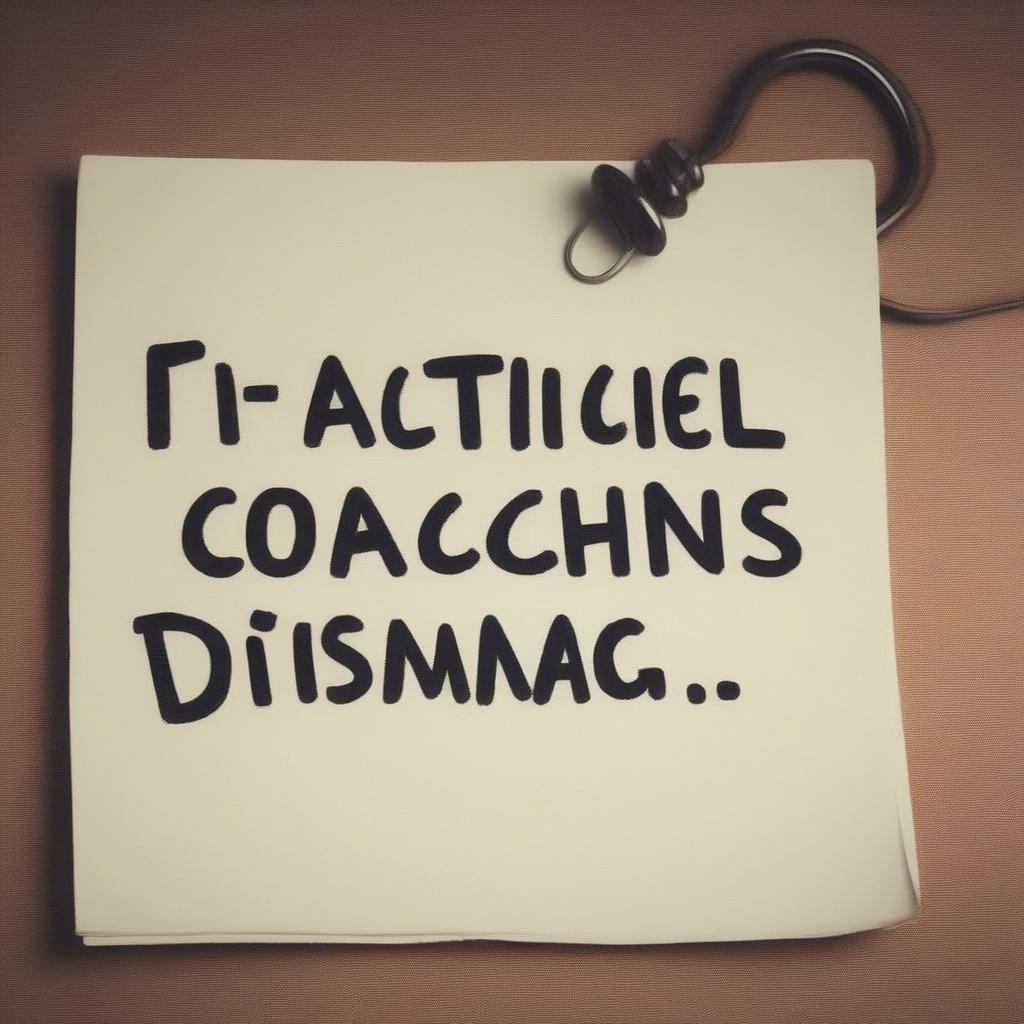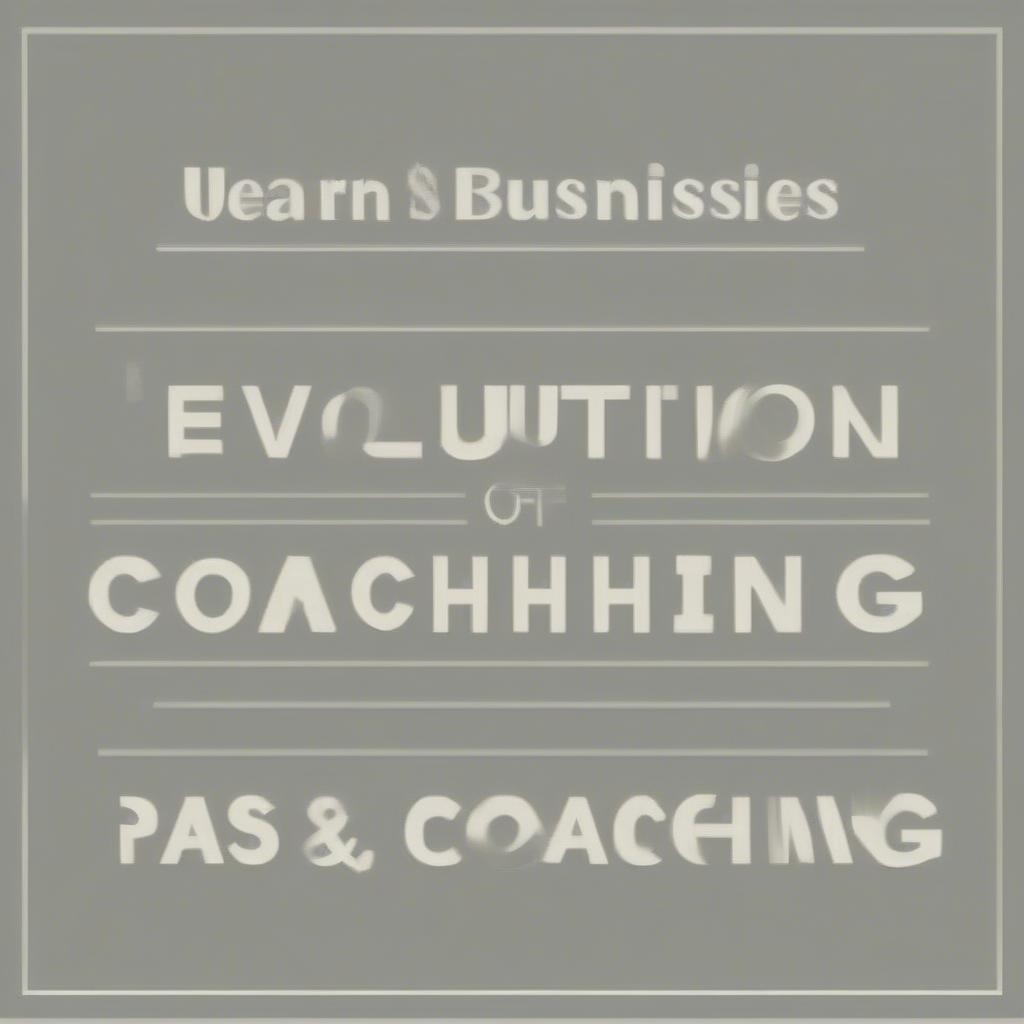
Coaching, at its heart, is about empowering individuals to achieve their full potential. But navigating the complex landscape of human interaction and personal growth also presents unique ethical challenges. Understanding how to address these ethical dilemmas with integrity and skill is crucial for any coach striving to build trust and facilitate genuine transformation. This article delves into the critical aspects of coaching ethics, offering practical guidance and actionable strategies for handling situations where your values might be tested. Let’s explore the world of professional conduct in coaching and equip you to confidently navigate the gray areas.
The Cornerstone: Understanding Coaching Ethics
What are Coaching Ethics?
Coaching ethics, in its simplest form, is a set of moral principles that guide coaches in their professional practice. These principles are not just abstract ideas; they form the bedrock of a trustworthy and effective coaching relationship. They ensure that the coach’s actions serve the client’s best interests, prioritize confidentiality, and maintain professional boundaries. When coaches adhere to a strong ethical code, they create a safe and supportive environment where clients can openly explore their goals and challenges.
Why are Coaching Ethics Important?
The importance of coaching ethics cannot be overstated. A strong ethical foundation is essential for several reasons:
- Building Trust: Clients confide in their coaches with personal and sensitive information. Ethical conduct is paramount in building the trust necessary for a successful coaching partnership. Without trust, the coaching process cannot truly thrive.
- Maintaining Professionalism: Ethical guidelines help maintain the integrity of the coaching profession. They ensure that coaches act responsibly and uphold the reputation of the field.
- Protecting Clients: Ethical boundaries protect clients from harm, exploitation, or any form of unethical behavior. They safeguard the client’s well-being and ensure the coaching experience is positive and empowering.
- Ensuring Effectiveness: When ethical principles guide the coaching process, clients are more likely to achieve their goals. Trust, respect, and open communication foster an environment conducive to real growth.
- Legal Compliance: In some regions, specific laws govern coaching practices, making adherence to ethical guidelines a matter of legal compliance as well as moral responsibility.
Key Principles of Ethical Coaching
Several key principles form the foundation of professional conduct in coaching. These include:
- Confidentiality: Keeping client information private and secure is paramount. Disclosing information without explicit consent is a severe breach of ethics.
- Respect: Treating all clients with dignity and respect, regardless of their background, beliefs, or values. Respect is fundamental to building a healthy coaching relationship.
- Autonomy: Recognizing the client’s right to self-determination and supporting their independent decision-making. Coaches guide, they don’t dictate.
- Integrity: Acting with honesty, transparency, and consistency in all coaching interactions. Maintaining a high level of integrity builds credibility and reinforces the ethical nature of the partnership.
- Competence: Only practicing within your areas of expertise and seeking appropriate support when necessary. It’s vital to recognize the limitations of your skillset.
- Impartiality: Avoiding conflicts of interest and maintaining objectivity in your coaching approach. Keeping your own biases and opinions separate from the client’s process is critical.
- Professional Boundaries: Maintaining appropriate boundaries between personal and professional life. Clear boundaries are crucial for the client’s well-being.
- Beneficence: Always acting in the best interest of the client and striving to help them achieve positive outcomes. The driving principle should always be the client’s betterment.
Identifying Ethical Dilemmas in Coaching
What is an Ethical Dilemma?
An ethical dilemma occurs when a coach is faced with a situation where two or more ethical principles conflict, or when the correct course of action is unclear. These dilemmas often involve complex scenarios where there is no straightforward right or wrong answer. It is the coach’s responsibility to carefully consider all aspects of the situation and choose the course of action that aligns with the highest ethical standard.
Common Scenarios That Lead to Ethical Dilemmas
Several situations frequently lead to ethical dilemmas in coaching. Some examples include:
- Confidentiality Breaches: When a client reveals information that could potentially harm themselves or others. Deciding whether to break confidentiality can be an intensely difficult decision.
- Conflicts of Interest: When a coach’s personal interests or relationships conflict with the client’s best interests. A dual relationship can compromise the coach’s impartiality.
- Boundary Violations: When the coach’s personal life or behaviors inappropriately cross into the professional relationship. Blurred boundaries can undermine trust and the coaching process.
- Value Conflicts: When the coach’s personal values clash with the client’s beliefs or choices. Remaining impartial in the face of different values is a key skill.
- Competence Limitations: When a client’s needs exceed the coach’s current skillset or experience. Knowing when to refer is an ethical obligation.
- Financial Impropriety: When conflicts of interest or improper fee agreements arise. Financial matters must be handled ethically and transparently.
- Plagiarism: If client’s work is used for promotional or training purposes without consent. Originality and confidentiality must always be protected.
Real-Life Examples of Ethical Dilemmas
To further understand ethical dilemmas, let’s look at a few practical scenarios:
- The Suicidal Client: A client reveals that they are having suicidal thoughts but pleads with the coach not to tell anyone. The coach must balance the principle of confidentiality with the principle of protecting the client from harm.
- The Dual Relationship: A client asks the coach to become involved in a romantic relationship. The coach must carefully navigate the issue of dual relationships and maintain appropriate boundaries.
- The Overly Demanding Client: A client constantly pushes for more time and resources than agreed upon. The coach must uphold clear professional boundaries and financial agreements.
- The Client with a Problematic Goal: A client reveals they want to use coaching to manipulate others, which goes against the coach’s values. The coach needs to decide how to address this goal ethically and whether to continue working with the client.
- The Client in Distress: A client comes to a session with clear signs of distress that the coach is not qualified to handle. The coach must assess if they have to refer client to other professionals.
These examples highlight the complex nature of ethical dilemmas in coaching and the need for a clear process to handle them appropriately.
The Process of Addressing Ethical Dilemmas: A Step-by-Step Guide
When faced with an ethical dilemma, a structured approach is essential. Here’s a step-by-step guide:
Step 1: Recognize the Dilemma
The first step is to acknowledge that you are facing an ethical dilemma. Often, the feeling of discomfort or unease can be a signal. Pay attention to your intuition and carefully analyze the situation. Do not dismiss your feelings or rationalize behaviors.
Step 2: Gather Information
Gather all relevant information regarding the situation. This includes understanding:
- The Facts: What are the concrete details of the situation?
- The Stakeholders: Who are the individuals or groups affected by the dilemma?
- The Values: What ethical principles are in conflict? What personal values are being tested?
- The Potential Consequences: What are the possible outcomes of different courses of action?
Be as comprehensive as possible to ensure a well-informed decision.
Step 3: Consult with Mentors or Peers
Seek guidance from experienced coaches, mentors, or supervisors. Discussing the situation with a trusted professional can provide valuable perspectives and options. Sometimes, an outside point of view can reveal nuances you might not see yourself. Do not feel ashamed, as seeking help is part of maintaining professional conduct within coaching.
Step 4: Review Relevant Codes of Ethics
Consult your professional coaching organization’s code of ethics. Familiarize yourself with the guidelines and principles related to the specific situation. Use this as a reference to help you make your decision.
Step 5: Consider Different Courses of Action
Brainstorm potential solutions, and analyze the pros and cons of each. Think through the various ways you might resolve the issue and consider the possible ramifications of each option.
Step 6: Choose a Course of Action
Based on your analysis, select the course of action that aligns with the highest ethical standard. This might involve a tough decision, but ethical clarity should be your guiding principle.
Step 7: Implement the Decision
Once you have chosen a course of action, put it into practice. Be prepared to communicate your decision to all relevant parties.
Step 8: Reflect and Learn
After the situation has been addressed, take time to reflect on your process and learn from the experience. What lessons can you draw to help you handle future ethical dilemmas more effectively? This step is often overlooked but essential for continuous growth and professional conduct.
Practical Strategies and Tools for Ethical Coaching
Beyond a structured process, several strategies and tools can support ethical coaching practice.
Clear Contracts and Agreements
Develop detailed coaching contracts that outline your ethical commitments, confidentiality policies, fee structures, and cancellation policies. These contracts act as a reference point for both coach and client, fostering trust and transparency.
Template for a Coaching Contract:
- Introduction: Briefly introduce your role as a coach, the purpose of the contract, and a reference to coaching ethics.
- Scope of Coaching: Define the boundaries of the coaching relationship and what topics will be covered.
- Confidentiality Agreement: State the commitment to client confidentiality and under what circumstances it might be breached (e.g., imminent risk of harm).
- Roles and Responsibilities: Clarify the roles and responsibilities of both the coach and the client.
- Sessions and Scheduling: Explain session durations, scheduling policies, and cancellation procedures.
- Fees and Payments: Outline fee structures, payment schedules, and payment methods.
- Termination Policy: Explain the conditions under which the coaching relationship can be terminated.
- Conflicts of Interest: State any potential conflicts of interest that may exist and how they will be handled.
- Contact Information: Include contact information for both parties.
- Signature: Provide spaces for signatures, ensuring both parties consent to the agreement.
Self-Reflection and Awareness
Regularly reflect on your own values, biases, and motivations. Maintain a high degree of self-awareness to ensure these elements do not impede your ability to coach ethically. Utilize journaling or other personal reflection methods to enhance self-awareness.
Seek Ongoing Professional Development
Participate in training programs and workshops that address coaching ethics and professional conduct. Continuous learning is essential for maintaining and enhancing your skills.
Mentoring and Supervision
Engage in regular mentoring and supervision. This allows you to discuss challenging situations with experienced coaches and get guidance on navigating complex ethical issues.
Use Case Studies
Regularly review hypothetical case studies that pose common ethical dilemmas. Analyze and determine the most appropriate courses of action. This builds your ability to respond swiftly and effectively in real-life situations.
Documentation
Maintain careful records of your coaching sessions, including notes on any ethical concerns or dilemmas encountered. This can help you make informed decisions and provide supporting evidence if a situation is disputed.
Learn Business: Your Partner in Ethical Business Practices
At Learn Business, we understand that operating a successful business involves more than just making a profit; it also requires upholding high ethical standards. We support businesses by providing guidance and templates tailored to meet the specific requirements of the companies. We recognize that ethical business practices are paramount in maintaining trust, building a positive reputation, and achieving long-term success.
We offer a range of tools and resources to help you:
- Develop a Strong Code of Ethics: Create a personalized code of ethics that is specific to your business needs, promoting a culture of integrity and transparency.
- Build Trust with Customers and Stakeholders: Discover best practices for cultivating relationships built on honesty, respect, and reliability.
- Navigate Ethical Dilemmas with Confidence: Access tools and strategies for identifying, analyzing, and resolving ethical dilemmas effectively.
- Promote a Culture of Accountability: Implement practices that reinforce ethical behavior throughout all levels of your business.
- Ensure Compliance and Protect Your Reputation: Understand legal requirements and develop processes to avoid ethical breaches that can damage your company.
Learn Business is your partner in creating a business that not only excels financially but also operates ethically, making a positive impact on the world. We support businesses in the following areas:
- Developing Business Plans: Templates and guidance to create a structured roadmap for success.
- Crafting Marketing Strategies: Developing a strategy to effectively reach the target market and build a strong brand.
- Optimizing Financial Practices: Resources and tools to manage finances, and ensure long-term financial stability.
- Managing Operations: Strategies for increasing efficiency and productivity, ensuring quality standards.
Our commitment is to support you in every step of your business journey, helping you create a thriving and ethical company. We believe that when businesses are built on a foundation of integrity and ethical practice, they not only succeed but also have a positive influence on the wider world.
Conclusion: The Ongoing Journey of Ethical Coaching
Handling ethical dilemmas in coaching is not a one-time task but rather an ongoing journey of learning, reflection, and growth. A commitment to coaching ethics and professional conduct is essential for building trust with clients and maintaining the integrity of the coaching profession. By understanding ethical principles, identifying potential dilemmas, and applying a structured process for decision-making, coaches can effectively navigate complex situations and uphold the highest ethical standards. This unwavering focus on ethics ensures that coaching remains a powerful force for positive change and personal growth. Remember that ethical practice is not just about following rules; it’s about embodying the values of integrity, empathy, and respect in every coaching interaction.



Leave a Reply